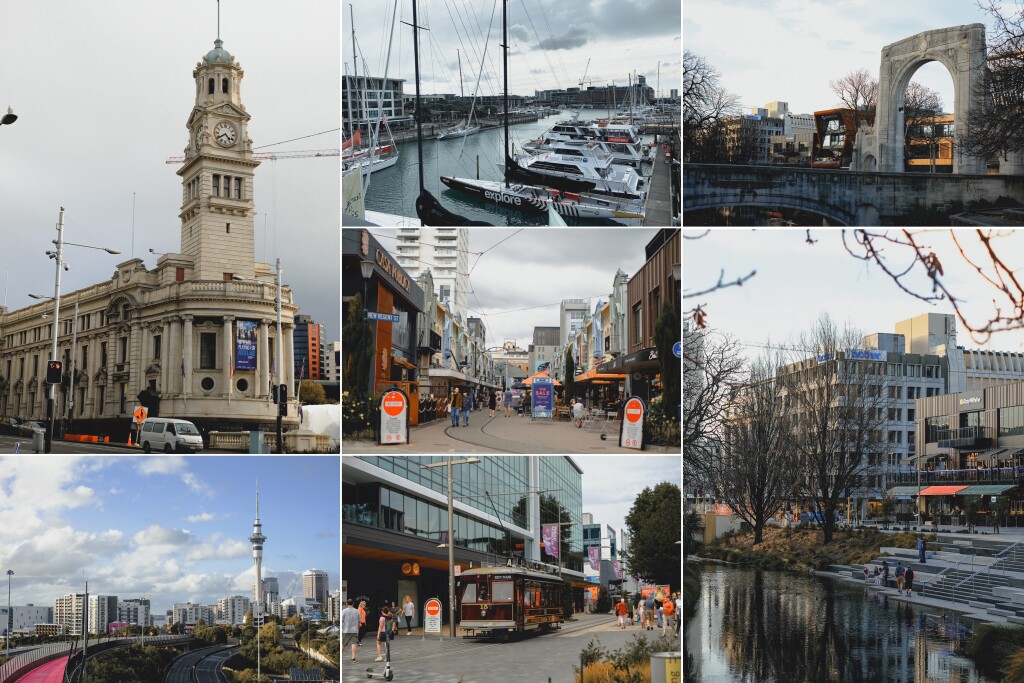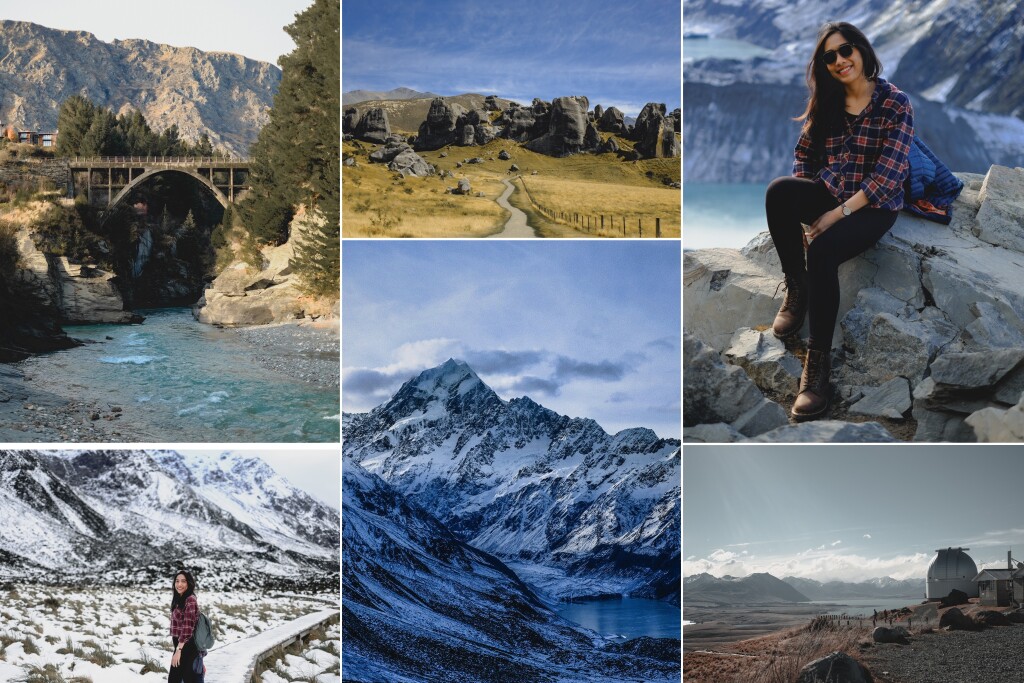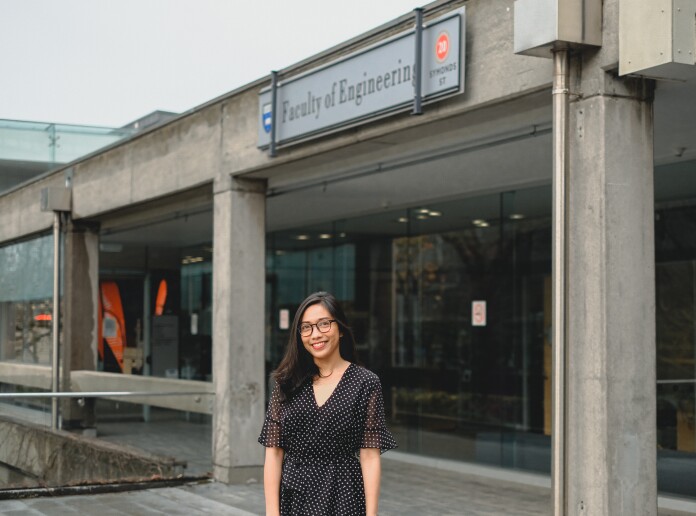Annisa Hasanah explored her academic and professional odysseys in Transportation Engineering in New Zealand. After completing her Master’s degree at The University of Auckland, she got valuable experience in professional employment that eventually shapes her passion in Transportation Engineering.
***
How do I start to fill the blank page?
It was pure intuition. Love at first sight. And I just have the gut of saying so.
I recall how I was two years ago. I was in a crisis of shaping my life. I am a civil engineering graduate, specialised in transportation. But thoughts of “what do I actually aspire to be?” or “is this what I really want?” or “which part of transportation engineering?” were revolving. There were so many gates, and I kept second-guessing my ability and my future. But I have been clear enough of my long-term goal: to be an academics.
Then, I started my application at the University of Auckland. Little did I know what the University is well-known for (especially for transportation engineering). It was pure love at first sight with the country – see NZ pics, and you’ll know – and I just had the intuition to apply at UoA. Applying to UoA was quite simple. It took about a week for me to apply for the programme and another month to get the letter of decision. I assume that there are many articles about the submission process at the University on this platform therefore, I’m not going to speak more about it.
With limited knowledge about engineering in New Zealand and what’s UoA’s transportation department is famous for, I got accepted. At that time, I was not sure which specific field I should study more. Then, I started to browse and found out that pavement engineering and transport infrastructure study in New Zealand is pretty good. It was like a calling. So, there you go. I chose to shift my plan. I never thought that changing from public policy to transportation asset was a kind of revelation to my passion in my engineering career.
We are all a little suspect of our own talent – reasonably so, I give myself a try.
Most of us would likely experience confusion to find out our passion, love, creativity. If you have not found your passion, it is okay. Some of us are lucky enough to find passion before hitting the road, but others had to meet the fork in the road then find the passion along the way. It’s okay. No one has the same journey. I grew my passion when I started to walk on my Master’s journey. I was in the middle of the intersection and gave myself some contemplation and deliberation time. I did some research before choosing the right leg, ever since before stepping my foot in NZ, and while I did my first literature review assignment.
During that period, I came across publications by Dr.Theuns Henning. He’s one of the academics from UoA specialised in pavement and asset management. I was like, “what is asset management?”: I had zero knowledge about asset management, in particular, I could not recall studying it back in the University. But I grew an interest in the field. I read most of his publications, I browsed through websites, and I concluded that NZ is advance, one of a kind in asset management practice. I learnt a diverse field of transportation engineering: from safety, public policy, airport engineering, traffic, et cetera. But asset-related, I have no idea at all. But then I remember little work I did before my study; it was about pavement forensic and deterioration inventory. I was thinking, is it one of asset management practices? And I was right. Then, I had this firm vision: okay, this is my thing; this is the thing that I would like to pursue.
The study
With a clear vision, I started my life as a Master’s student. At that time, my goals were to gain knowledge in asset management, graduate, and expand my network. I took these courses during my study: Transport Economics, Highway Geometric Design, Planning and Managing Transport, Highway and Transportation Design, Pavement Design, Traffic System and Design, and of course, Infrastructure Asset Management and a more advanced topic for it: Road Asset Management –I just realised that I took almost all level 9 design papers!

I had set my eyes on the last two courses I mentioned above to learn about asset management and meet Dr. Henning in person. My intuition was right: I instantly fell in love with the course.
So, let me summarise my academic experience. Infrastructure asset management is about how you manage and optimise the serviceability of a built infrastructure by using sets of activity to achieve objectives in an organisational context. The emphasis on asset management is not build–neglect–rebuild: an asset manager is not a maintenance manager. Asset managers need to think outside the box to decide a a smart and holistic planning, which considers asset sustainability, whole life cost, continuous improvement opportunities, and risk optimisation. The management system’s outcome is a resilient infrastructure and optimised level of service, risk, and cost from its creation to disposal. The right decision holds the key to the efficiency, effectiveness, and efficacy in delivering asset management: doing things right – doing the right thing – setting the right objectives.
Interesting, right? So, we are the decision-maker.
I did learn the real practice of being a road asset manager: dealing with data, deliver key pieces of information from the data, creating treatment selection scenario for the long term and short term planning, decision making based on the data analysis result, and cost analysis of the designed maintenance programme.
Sounds like a pain for your brain, aye? It was! I thought that I failed the course because I basically knew nothing. But I realise, when you do what you love, fear and thrill will tag along, like two sides of the same coin, inside the pocket of your passion. When you feel either way while doing what you love, you are actually in the right direction. I was right. It turned out it was the best grade I ever had – I’m not a considerably smart student. In fact, I got a C+ too. I can say that I discovered my passion along the way. And I humbled my passion.
I finally got the chance to speak with Dr. Henning and just humbly said that I enjoyed his papers, and studying asset management is why I came to New Zealand. I count myself lucky because I got the chance to be supervised by him for my Master’s thesis (like a dream come true!). Then, it is like the gate to other opportunities.
The professional career
I never thought I would have a career experience during my study. I would like to do an internship and some works related to my field, yes absolutely – I mean, who doesn’t, right?. In New Zealand, internship is mandatory for undergraduate students, not for Master’s. Company or industry in New Zealand mostly recruits student that will ‘likely stay in the country’. Therefore, you are not only competing with undergraduate students but also those who have a career plan and stay in the country for some time. If you are not planning to stay, just rethink it because the chance is almost second to none. But then, it does not mean it’s not worth the shot, eh?
I reflected on my goal, and with strong determination I had, I gave it a try. So, my effort to achieve my professional development goal was by discussing with lecturers and supervisors, went to networking events, etc. I think big and keep the vision of professional work on my goal. One by one, opportunities eventually came.
The first one was the opportunity to work in the asset management industry. I worked with Infrastructure Decision Support (IDS), not only for my research but also for analysis for the Waka Kotahi Transport Agency. Working with IDS was my first international-professionally paid career experience. My task involved reviewing laser scanning survey and whether the technology is applicable for New Zealand roads. This wider outcome of this work is sets of recommendation to New Zealand councils into what extent they should use this technology and what kind of calibration or protocol they need to do to validate between survey result and field inspection.
I spent several months working on the project. And I can say that I was pleased because this is a whole new thing for me as a ‘new-born’ asset management engineer, but the outcome of my contribution was reliable enough to be presented in front of Pavemetrics – the laser scanning survey provider from Canada – and the Waka Kotahi.
Summer, 2019. I was almost done with my work with IDS. I had a discussion with my supervisor then surprisingly asked me to choose whether I want to work more or not. Of course, the answer was a big yes. He gave me options, working with a government body in Christchurch or working as a research fellow in Hastings, Napier. At that time, my mind was all about Christchurch. Then, for several weeks I had not received updates. I almost gave up my dream of spending the last bit of summer in Christchurch and was re-planning what I should do in Auckland.
Good stuff comes at the right time in such an unpredictable way. Amid a hopeless moment, I got the email that I had to commence my work in Christchurch soon. It was early January. I got the contract on Wednesday, and I had to start on the following Monday. The excitement was all over me. It was a very challenging moment preparing for your move in less than a week. Blessed with luck, I settled my apartment and everything, then I took my flight on Sunday, one day before I started my work, and restart my life down south to Christchurch.

The government body I was working for called Environment Canterbury (ECan). The name might cause confusion, but it’s not an environment consultant. ECan is a regional council for Canterbury. There are two regional councils in NZ using Environment as their branding: Canterbury and Southland –just FYI. There are 9 district councils and 1 city council under the Canterbury region.
So, what was my role there? I was appointed as a strategic advisor for transportation planning under the Strategic and Planning Team. My role was related to asset management practice – I know, right!! It has always been asset management! I was tasked to analyse transport evidence-based strategy in Canterbury and suggest transport performance indicators to monitor transport outcomes. The indicator envisioned to deliver an inclusive monitoring model for an evidence-based to achieve the objectives of all parties and councils involved. This work involved working with a pile of datasets and which datasets relevant for the evidence base analysis and grouped the datasets to long-term and short-term monitoring. I was also given the task to provide fact sheets for councils for the Land Transport Planning 2021. To be honest, it was my first time to legit work for a niche government.
Besides being able to have an in-hand contribution to regional transport planning, I also got the chance to engage with councils and local authorities. It definitely was one-of-a-kind professional and self-development experiences. I got the chance to be involved in councils and local authorities meeting and participated in a workshop preparation for councils to bridge the regional transport planning. I met Mayors from all 10 local and city councils and witnessed how they perform their governance and interacted with them were exciting. From councils engagement, I learnt that the way councils or local authorities think when an engineering review or report were handed to them are it is either too academics, too ‘engineering’ but not practical, and the language are not easy to digest. They would like to use it as a guide therefore, I was challenged to shift the way of thinking to pull the rabbit out of the hat to address the engineering outcome and council’s concern at the same time.

I also worked for the University for a casual, more for a social and networking role. Together with the Student Engagement Team, I worked as the Graduate School of Engineering’s student ambassador. I was involved and participated in supporting faculty events, student, and alumni engagement. It was a fun role, once again, a casual role. During the national lockdown in April, we were tasked to manage the Faculty’s social media and do some engagement with the students to support each other’s wellbeing.
The key traits
Valuable, one-of-a-kind experiences in working in the asset management field developed a new way of thinking. I realise that engineers have a different way of thinking from strategic level people. That’s where we have to think from both strategic and planning and engineering sides to fill the gap. We need to adjust the language to be more “friendly” and ‘understandable’ in many aspects and manner; therefore a same page understanding can be gained.
From the professional environment, New Zealand is a country where if you have the potential, no matter who you are or how old you are, your voices will be heard. There is no strict hierarchy in a positive, work-life balance environment. Your surroundings, somehow, make you more confident with your idea and support your passion.

Okay, I talked a lot about working as a professional in New Zealand while studying for my master’s. If I were asked to really talk about it in detail, I think one article won’t fit. But one thing for sure, I can note that if you get close to what you love, who you are is revealed to you, and it expands: you can feel your calling, and you just walk it.
I count myself lucky and blessed to be able to reach this point in my life. I may have international career experience, but still, there are rooms for improvement in me. That being said, I need to fill it with more knowledge to set my foot in contributing to my country using these sets of tools I achieved.
So, if you ask me, “Are there further suggestions?” then let me say:
- What you aim determines what you see. Be honest but be modest. Be conscious of your desire and passion, then articulate them. These will aid you in the pursuit of your goals. It’s okay to, sometimes, play the fool along the way. It doesn’t mean to ‘make yourself stupid,’ but instead, it’s a strategy to pay attention and to keep you notice your surroundings while you embark on your journey through a path that will lead to a greater good.
- If you want to study civil engineering, to be specific, asset management, no second-guessing, go to New Zealand –it’s subjective, I know, but I’m saying the truth! Its cutting-edge application of infrastructure asset management is one-of-a-kind and you’ll thank me later.
- To really conclude, if you want to get the most of your experience while studying abroad: put your introvert-self into the chest while it is needed, expand your network, and lowkey ooze your charisma while doing it. You can get a job by one simple conversation as “I have some jobs for you; you can choose one.” Don’t be afraid to speak up and mingle.
***












